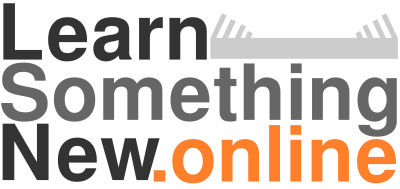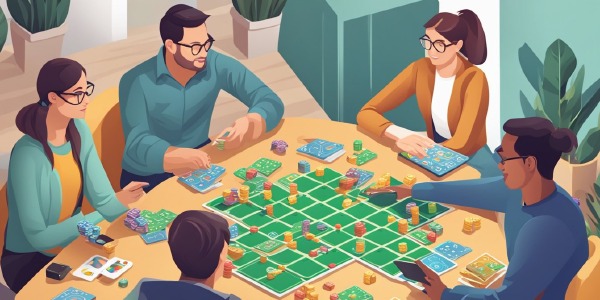10 Best Websites to Learn Coding for Free: Unleash Your Potential Today!
Learning to code has never been more accessible or essential in the modern job market.
With a wealth of coding languages and technologies at the core of virtually every industry, gaining proficiency in coding can open doors to numerous career opportunities.
Fortunately, for those looking to start or enhance their coding journey, there are several high-quality websites that offer coding courses for free.
These platforms are designed to accommodate learners at all levels, from complete beginners to more experienced coders seeking to broaden their skill sets.

Online education has transformed the way students and professionals upgrade their skills, making it convenient to learn from anywhere, at any time.
The best part about these available resources is that they don’t require a hefty investment.
Whether you’re a student looking to get ahead, a professional eyeing a career shift, or a curious individual with an interest in technology, the internet has something for everyone.
You can build a robust coding foundation, learn the nuances of different programming languages, and start working on your own projects without spending a dime.
Key Takeaways
- Accessible online platforms offer free courses to learn coding for individuals at all levels.
- The ability to learn coding for free online empowers students and professionals to enhance their skillset and pursue new career opportunities.
- Free coding resources provide an invaluable opportunity for practical experience and community engagement in the coding world.
Exploring the World of Coding

Coding is like learning a new language that opens up a digital world for you to create and innovate.
It’s a structured way to communicate with computers and the tool to develop software, websites, apps, and much more.
What Is Coding?
Coding, sometimes called programming, is the process of crafting instructions for computers using programming languages.
Your written code is converted into a format that machines can understand, guiding their behaviors and actions.
Popular languages you might encounter include:
- HTML/CSS: for structuring and designing web pages.
- Python: known for its readability and versatility in web and software development.
- Java: used in numerous systems from web applications to enterprise servers.
- JavaScript: essential for dynamic and interactive elements in web development.
- PHP: a widely-used server-side scripting language for creating dynamic web pages.
- C/C++: a foundational language that many modern languages are derived from.
- Perl: a language known for its prowess in text processing and system administration.
Benefits of Learning to Code
Learning to code grants you several advantages:
- Career Opportunities: Proficiency in coding can open doors in diverse fields like IT, software development, data analysis, and more.
- Problem-Solving Skills: You’ll develop the ability to break down complex issues into smaller, manageable parts.
- Creativity and Innovation: Coding encourages you to think creatively and innovate solutions.
Coding Languages Overview
Programming languages are tools that express computing concepts and allow developers to create software and manage data:
| Language | Usage | Notable Feature |
|---|---|---|
| HTML/CSS | Website structure and style | Wide use in web design |
| Python | General-purpose, versatile | Syntax ease, large community |
| Java | Web applications, enterprise solutions | Cross-platform compatibility |
| JavaScript | Interactive web content | Integral to modern web |
| PHP | Server-side scripting | Core of many web platforms |
| C/C++ | System programming, game development | Performance and control |
| Perl | Networking, finance, system admin | Text processing capabilities |
Each language has distinct purposes and features. Together, they enable vast possibilities in software and web development, among other areas. As you begin coding, understanding the role of each language will guide your learning path.
Selecting the Right Learning Platform

Choosing the right platform for learning to code is crucial. It’s vital to understand the type of educational resources available, platform types, and how personalized learning paths can enhance your coding journey.
Comparing Educational Resources
When evaluating coding websites, consider the breadth and depth of the free courses offered.
Websites like edX and Coursera provide courses from universities, giving you access to high-quality materials.
On the other hand, platforms like Codecademy and freeCodeCamp present interactive tutorials focused on web design and development.
For practicing code, Codewars and Edabit offer a vast array of challenges that can help you apply what you’ve learned.
W3Schools and SoloLearn are excellent starting points for beginners due to their straightforward tutorials and easy-to-navigate interfaces.
Meanwhile, platforms like Khan Academy offer courses that cover the basics of computer programming with a strong educational approach.
| Platform | Focus Area | Certification Availability |
|---|---|---|
| edX | University Courses | Yes |
| Coursera | University Courses | Yes |
| Codecademy | Web Development | Yes |
| W3Schools | Tutorials | No |
| SoloLearn | Varied Topics | Yes |
| Codewars | Code Challenges | No |
| Khan Academy | Introductory Coding | No |
Understanding Platform Types
Identify whether you’re more suited for structured programs or a self-paced learning environment.
Structured programs like Udacity’s Nanodegrees and Treehouse offer clear timelines and a project-based curriculum which can be ideal if you prefer a classroom-like setting.
On the contrary, platforms like The Odin Project and Code Avengers allow you to learn at your own pace, perfect for fitting your coding studies around a busy schedule.
- Structured Platforms: Udacity, Treehouse
- Self-paced Learning: The Odin Project, Code Avengers
Personalized Learning Paths
Many platforms offer personalized learning paths that adapt to your skills and goals.
Codecademy and Pluralsight excel in this area with tailored experiences that guide you through tracks designed to make you job-ready.
SoloLearn and Code.org also offer progression systems to keep you motivated as you advance.
- Codecademy: Tailored tracks, interactive platform
- Pluralsight: Personalized content, skill assessments
- SoloLearn: Progression system, community support
- Code.org: Designed specifically for learners of all ages
Popular Free Coding Courses and Websites

If you’re eager to expand your coding knowledge, plenty of remarkable websites offer free courses to guide you—from beginner lessons to university-level materials. Here, you’ll find some of the top online resources tailored to your learning needs.
Codecademy for Interactive Learning
Codecademy is a fantastic platform where you can start your coding journey for free.
It’s widely praised for its interactive learning environment that teaches web development, programming, and computer science essentials.
Whether you’re a newbie or looking to refresh your skills, Codecademy caters to all levels.
MIT OpenCourseWare for In-Depth Material
For a more comprehensive dive, MIT OpenCourseWare lets you access a vast array of courses from one of the world’s leading universities.
This resource provides in-depth materials that include lecture notes, exams, and videos without any registration required.
FreeCodeCamp for Community Support
As a non-profit organization, FreeCodeCamp helps you learn to code and land a job in technology.
Their courses cover web development, data visualization, and more.
Benefit from thousands of interactive coding challenges and a supportive community forum that can accelerate your learning.
Coursera and edX for University-Level Courses
Coursera and edX partner with universities like Stanford and Harvard to provide a range of free courses.
Although some certificates come with a fee, you can audit most classes at no cost.
These platforms offer a wealth of knowledge with the flexibility of learning at your own pace.
YouTube for Diverse Content
With an endless number of YouTube channels dedicated to coding, you can find tutorials on virtually any language or technology.
Channels often offer beginner-friendly guides and diverse content from experienced programmers.
Remember, the more you practice and engage with these communities, the more you learn.
Getting Practical: Start Coding Your First Project

Embarking on your first coding project is an exciting milestone.
By choosing an achievable project and leveraging online resources, you begin transforming theory into practice.
Choosing a Simple Project
Firstly, pick a project within your skill level.
Initially, you might want to focus on web development by building a static webpage using HTML and CSS.
If you’re inclined towards game development, consider creating a basic web-based game like tic-tac-toe.
For those interested in mobile development, a to-do list application is a manageable start.
Remember, the goal is to reinforce your learning by applying it, not to overwhelm yourself.
Using Online Tools and Libraries
Take advantage of online tools and libraries that can provide shortcuts and help you learn more efficiently.
For web development, frameworks like Bootstrap can speed up the styling process.
In game development, libraries like Phaser can handle the heavy-lifting of game mechanics.
For mobile development, consider React Native or Flutter for cross-platform app creation.
Tools like GitHub will be valuable for version control and collaboration.
Learning by Coding with Examples
Finally, learn by coding with examples.
Start small by dissecting example projects and tweaking them.
For software development in general, platforms like GitHub offer repositories where you can explore code samples.
Whether it’s product design or development, examples provide a real-world context that can clarify complex concepts and techniques.
They can also offer insight into the typical structure and syntax of projects within your chosen area.
Building a Coding Skillset

Building a strong foundation in coding is essential to become a proficient developer.
You’ll start with fundamental skills, then progress to more advanced technical aspects, and finally learn to marry design and development for a well-rounded skillset.
Fundamental Skills for Developers
Firstly, it’s crucial to understand the basics of programming.
Websites that help you learn how to code often focus on languages like HTML, CSS, and JavaScript, which are the building blocks of web development.
- HTML (HyperText Markup Language): Start by crafting the structure of web pages.
- CSS (Cascading Style Sheets): Style your web pages for a visually appealing look.
- JavaScript: Add interactivity to your website to engage users.
In addition, data structures and algorithms are part of these foundational skills.
They’ll teach you how to store information and solve problems efficiently and effectively.
Advanced Technical Skills
Once you’ve grasped the basics, you’ll want to expand your technical capabilities.
This involves delving into more complex areas like:
- Backend development: Learn languages like Python, Ruby, or Node.js to handle the server side of applications.
- Data visualization: Use libraries such as D3.js to present data in a comprehensible and interactive way.
- Cloud computing: Understand how to utilize the cloud for storage and computing power, which is vital for modern applications.
These skills enable you to build more sophisticated and scalable applications.
Integrating Design and Development
Finally, it’s important to integrate design principles with your coding skills.
Understanding the fundamentals of web design and user experience (UX) will allow you to create applications that are not only functional but also intuitive and aesthetically pleasing.
- Web Design: Focus on layout, color theory, and typography to make your website look professional.
- Responsive Design: Ensure that your applications work well on a range of devices and screen sizes.
- UX Principles: Learn about user-centric design to make your website intuitive and user-friendly.
The Importance of Collaboration and Community
Learning to code is more than comprehending syntax and algorithms. It’s about becoming part of a dynamic field where collaboration and community play pivotal roles in knowledge sharing, problem-solving, and innovation.

Joining Coding Communities
By joining coding communities, you access a wealth of knowledge and experience from peers and mentors.
Websites like GitHub act as hubs for developers to share code and collaborate on projects.
As a non-profit organization, freeCodeCamp provides a supportive environment where you can learn alongside millions of others.
Engaging in forums like Hackr.io lets you exchange tips, get feedback, and connect with fellow coders.
Participating in Coding Challenges
Sharpen your coding skills through online platforms hosting coding challenges, like Codewars.
By solving real-world problems, you can measure your progress and see how others approach the same challenges.
These platforms often foster a sense of community by allowing you to discuss solutions and learn advanced techniques from your more experienced peers.
Collaboration and Open Source Projects
Collaboration is at the heart of the coding profession.
Open source projects on platforms like GitHub provide you with opportunities to contribute to real-world software.
Utilizing tools like Git, you can work together on code, track changes, and improve existing projects.
Contribute to these collaborative efforts, and you’ll not only enhance your skills but also help drive innovation in the field.
Additional Resources and Continuous Learning

While finding free websites to learn coding is an excellent start, expanding your education through various resources will help you stay current and specialize.
Blogs, podcasts, forums, and continuous education platforms offer cost-effective and flexible opportunities to enhance your tech skills.
Blogs and Podcasts
Blogs: Following blogs dedicated to programming can keep you updated with the latest trends, tools, and technologies. Look for ones with high ratings for quality assurance.
- Example: Stack Overflow Blog – Offers insights into new programming commands and concepts.
Podcasts: These are perfect for learning on the go. You can listen to episodes from industry experts discussing key topics in tech and digital marketing.
- Example: CodeNewbie Podcast – Tailored for those looking to break into coding.
Online Forums and Q&A Sites
- Forums: Engage with a community of learners and get your
questions answered.
- Example: Reddit r/learnprogramming – A hub where you can seek advice and share resources.
- Q&A Sites: For quick problem-solving and peer support.
- Example: Stack Exchange – Well-known for a vast amount of programming Q&A, beneficial for beginner to advanced levels.
Continuous Education and Specializations
Continuous Education: Platforms offering free or affordable courses allow you to upskill at your own pace.
- Example: Coursera - Provides courses in different specializations like AI, web development, and more.
Specializations: As you develop a base in coding, consider focusing on a specialization that aligns with your career goals.
- Example: edX - Offers MicroMasters programs and professional certificates to help you advance in specific tech domains.




